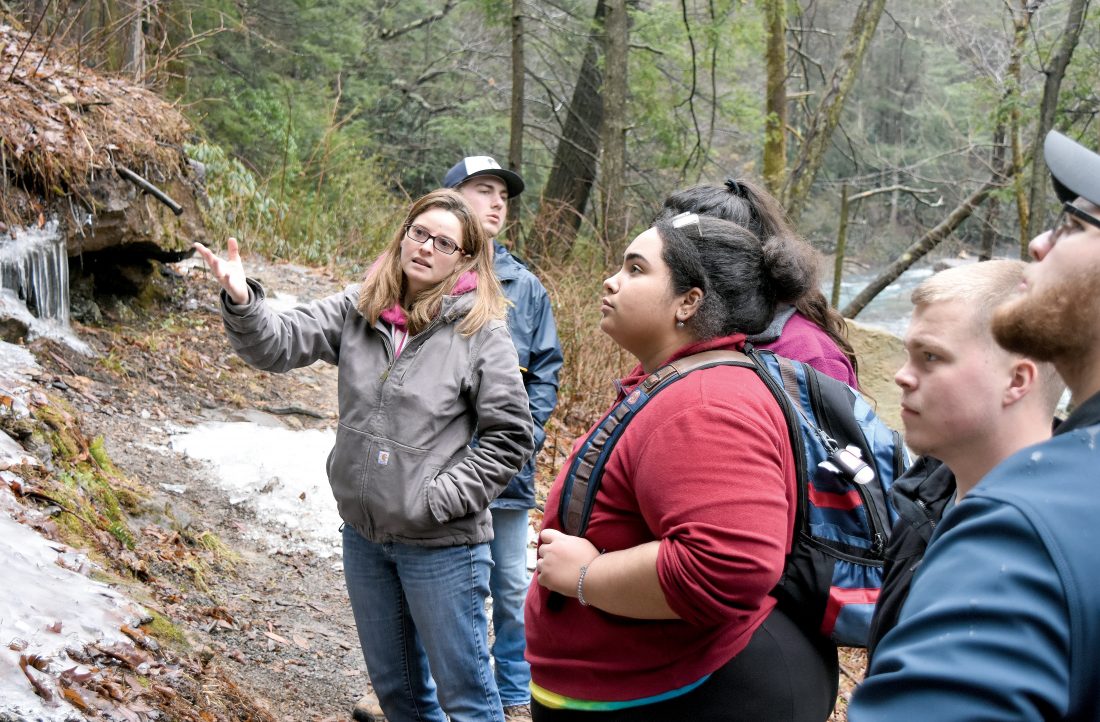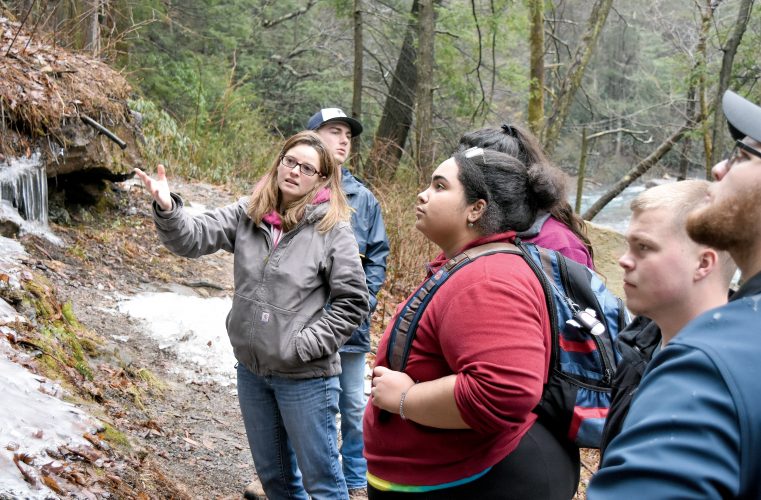AB professor co-authors research

Submitted photo Dr. Brandi Gaertner visits Audra State Park with her geology students.

Submitted photo
Dr. Brandi Gaertner visits Audra State Park with her geology students.
PHILIPPI — Climate change is altering freshwater provisioning throughout central Appalachia, posing considerable challenges for water resource management and water security, an Alderson Broaddus (AB) University professor’s research has found.
“Twenty-first Century Streamflow and Climate Change in Forest Catchments of the Central Appalachian Mountains Region, US,” co-authored by Dr. Brandi Gaertner, assistant professor of environmental science, appears in the peer-reviewed open access journal on water science and technology by Multidisciplinary Digital Publishing Institute (MDPI) Water, examines the amount of precipitation in heavily forested central Appalachian Mountains regions that provide fresh water to local and downstream metropolitan areas.
The research paper identifies floods, droughts, and low flow trends in relation to climate change and the region’s water resource management infrastructure, suggesting considerable challenges for managing the region’s water quality, quantity, and security over the 21st century. “It is important to identify both the historic streamflow patterns and indicators of the future streamflow,” explained Dr. Gaertner. “We can take proactive and preventative measures to prepare for eventual changes.”
The research paper was submitted in November 2019 and, following the peer-review process, was published in Water on February 8. Gaertner says the next step is to inspire further research from varied perspectives to continue the growth of information and set policies in place to address eventual changes in the Appalachian streamflow.
“In many areas, the water quality is very clean in West Virginia, and we act as a feeding channel for larger areas and bodies of water,” said Gaertner. “West Virginia has a legacy of people fighting for resources; timber, coal, natural gas, and eventually, that resource could be water. The goal is to inspire further research and make adjustments to Central Appalachian region’s roads, bridges, culverts, dams, and water treatment facilities that are outdated, poorly maintained, and at a higher risk of vulnerability.”
Gaertner earned a bachelor’s degree in biology with a minor in chemistry at Indiana University of Pennsylvania. From there, she continued onto Clarion University of Pennsylvania to obtain a master’s degree in environmental biology. She also holds a doctorate in forestry and natural resource management from West Virginia University.


